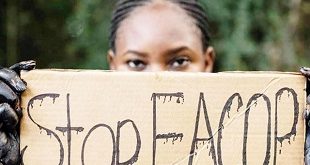
Kampala, Uganda | THE INDEPENDENT | The High Court in Kampala has quashed a three months’ sentence that was given to Lillian Aciro, a mother of seven who was convicted for defying presidential directives on the control of COVID-19.
Aciro was arrested at the beginning of April together with 19 others with whom they were jointly charged and convicted for disobeying lawful orders. They reportedly defied the night-time curfew imposed by the government to control the movement of people beyond 7 pm as the country battled a disease that has paralyzed the entire world.
The other persons convicted together with Aciro include Rodgers Keyi, Josephat Aceyi , Brenda Akao, Ben Aleper, James Jamel Alumal, Mary Nambi, John Paul Burusi, Felix Nyeko, Jackson Kamwaga, Daniel Muwanguzi, Tonny Kaziba, Isa Wapisa, Hassan Anguzo, Benard Atoroti, Fred Walusimbi and Josephine Acen, Gasi Madalema, Kerry Owori, Akram Mwanje.
They were initially convicted by Buganda Road Court Senior Grade One Magistrate Stella Maris Amabilis and sent to Kigo prison to serve their sentences. But this afternoon, the head of the High Court Criminal Division Justice Wilson Kwesiga said that the lower court procedurally erred when it failed to follow the rules of procedures governing trials.
Justice Kwesiga pointed out that the lower court convicted and sentenced the accused persons following a charge-sheet that did not clearly show the offence they had committed which tantamount to a miscarriage of justice. He accordingly quashed the conviction and sentence and ordered the immediate release of the group.
Justice Kwesiga’s decision followed an application for review that was filed by Primah Kwagala, the Director of Women’s Pro Bono Initiative after several calls to offer support to the seven minors who were abandoned in a house in Namuwongo when their mother was reportedly arrested and jailed for a misdemeanour.
Kwagala told the court that she visited the family on May 16 and found all children in one room with no hope, no food and no idea about their mother’s whereabouts. But in the pursuit of justice, she established that there were glaring irregularities in the procedure of recording the plea of guilt and the convicted persons never understood the charges against them.
Kwagala argued that if the Magistrate had asked the accused if indeed they had disobeyed the lawful orders, she should have been able to know that 16 of the accused persons were homeless. This is because evidence shows that they were sleeping on the streets and that there is no way they could have defied the directives on curfew if they had nowhere else to go.
******
URN
 The Independent Uganda: You get the Truth we Pay the Price
The Independent Uganda: You get the Truth we Pay the Price



